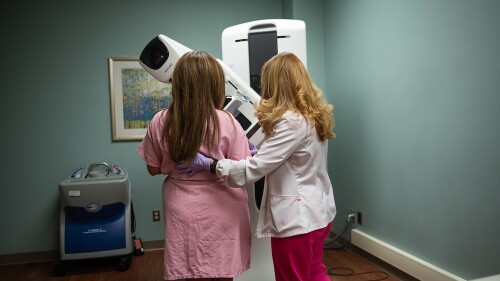While our health should always be a top priority, our specific healthcare needs change as we age.
While nearly 50% of women skip their preventative care appointments, for example, these yearly visits are key to early detection and optimal health. You may be wondering, “Early detection for what, exactly?”
In honor of Women’s Health Month, the experts at Novant Health are breaking down the necessary screenings for each age range.
Recommended for any age
- Full checkup: This includes height, weight, and more.
- Sleep habits: Discuss any concerns with your provider at your annual exam.
- Breast self-awareness: You should be aware of the normal appearance and feel — notify your doctor of any concerns or changes.
- Eye and ear health: Discuss any vision or hearing difficulties with your provider.
- Heart health: A blood pressure test is recommended at least every two years, as well as a cholesterol panel. (Did you know? Nearly 40% of adults in the US have high total cholesterol.)
- Mental health: Talk to your provider about any mental health concerns, including emotional or coping issues.
In your 20s and 30s
- Clinical breast exam: This is recommended every one to three years.
- Pap test: Here are five things to know about Pap tests (recommended every three years).
- Pelvic exam: Note: You may not need to have one every year.
In your 40s
- Mammogram: This preventative breast cancer screening is recommended every year starting at the age of 40 (early detection is key) — schedule at a Novant Health location.
- Colorectal cancer screening: Physicians recommend a colonoscopy every 10 years starting at age 45. (Note: The recommended age was lowered from 50 in 2021 due to the increase of cases in younger people.) There are also alternative screenings.
- Diabetes screening: Blood glucose or A1C tests should start at age 45, repeating every three years.
Ready to find a physician? Enter: Novant Health’s physician matcher. Whether you’re looking for an OBGYN, primary care doctor, or specialist, get matched with a provider.
Quiz
What percentage of heart disease is preventable?
























